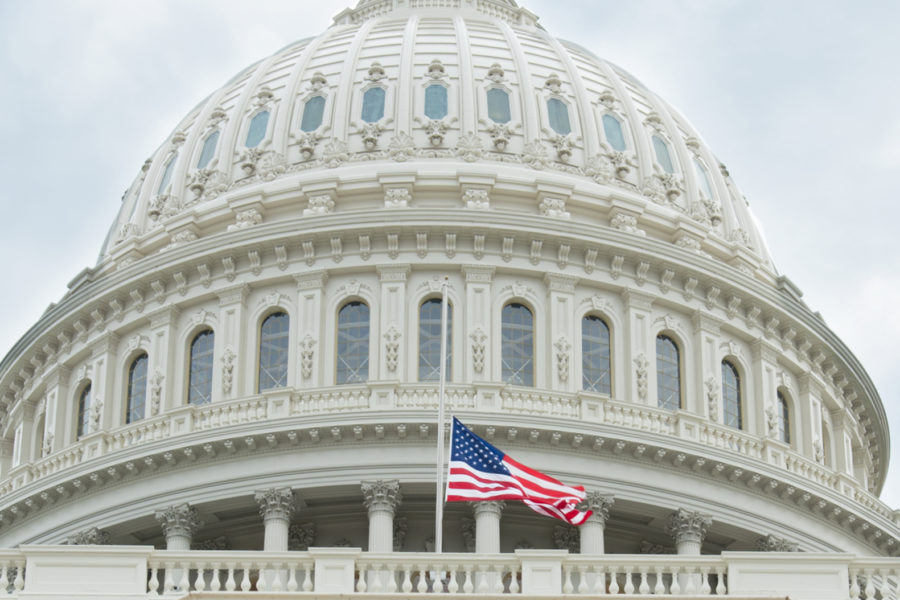Leaders on the Armed Services Committees in both the House and Senate are crafting a compromise National Defense Authorization Act and still hope to pass the annual policy bill before the end of 2022, HASC chair Rep. Adam Smith (D-Wash.) said Nov. 16.
Once more, lawmakers are scrambling to pass the NDAA at the end of the calendar year—and after the fiscal year has already turned over—as Congress sorts through a massive to-do list while running up against a deadline.
Both the House Armed Services Committee and Senate Armed Services Committee passed their respective markups of the 2023 NDAA in June, and the House passed its final version in July. Sen. Jack Reed (D-R.I.) and Sen. Jim Inhofe (R-Okla.), the chair and ranking member of the SASC, introduced the bill on the Senate floor in October, and Senators proposed hundreds of amendments.
But just like last year, the Senate never took action in considering those amendments, consumed by other priorities. In 2021, that included President Joe Biden’s massive proposed “Build Back Better” bill, among other pieces of legislation. This year, the midterm elections kept lawmakers on the campaign trail for much of October.
Now, with the holidays approaching, time is running short to get the NDAA to Biden’s desk, especially if the Senate passed its own version, which would require a conference process to reconcile it with the House bill.
Instead, leaders from both parties and both chambers are crafting a compromise bill outside of the conference process, as they did last year, with the intention of passing it unchanged in both the House and Senate.
That process is led by Reed, Inhofe, Smith, and Rep. Mike Rogers (R-Ala.), the ranking member in the HASC.
“We’re making progress. We’ve got another meeting tomorrow, and I’m pretty sure by the end of this week, we will have a bill that the House and the Senate, Democrats and Republicans, agree upon,” Smith said on C-SPAN’s Washington Journal on Nov. 16. “And the plan would be to pass it the first week of December. So we’re making good progress and are confident that we’ll get it done.”
That plan for quick passage could be in jeopardy, however. Rep. Kevin McCarthy (R-Calif.), currently the House Minority Leader and likely to be Speaker of the House in the next Congress, reportedly said the legislature should wait until January to move on the NDAA, according to States Newsroom.
Speaking at Politico’s Defense Summit, Smith pushed back on that idea and called out McCarthy by name.
“I hope Kevin McCarthy understands. … He claims to care about national defense. You are damaging the United States military every day past Oct. 1 that you don’t get it done. And certainly more so every day past Jan. 1,” Smith said.
Passing the NDAA every year has become a rite of passage for Congress, one of the few areas of bipartisan agreement over the past six decades.
As of late, though, that rarely has gotten done before the start of the new fiscal year each Oct. 1. There have even been a few recent examples of the NDAA not being finalized until the new calendar year—the Senate voted to override a presidential veto on the fiscal 2021 bill on Jan. 1, 2021. The 2008 NDAA didn’t get through Congress until Jan. 22, 2008.
Still, national security experts, Pentagon officials, and lawmakers focused on defense overwhelmingly prefer to pass it before the end of the year. While the NDAA does not appropriate funding for the Pentagon, it is often tied closely to that funding and directs how the Defense Department can and should spend its money.
Without an NDAA or a new budget, the Pentagon is stuck under continuing resolutions, which keep funding levels frozen at the previous year’s levels and prevent new programs from starting. It’s an issue Air Force leaders and others have frequently bemoaned, and it was cited by two other Congress members at Politico’s summit: Rep. Doug Lamborn (R-Colo.) and Rep. Jim Cooper (D-Tenn.).
“The annual passage of the NDAA is the beating heart of Congress,” Cooper said. “It is over half of the discretionary work that Congress does during the whole year. This one bill has been passed reliably for six decades. If this process were to stop due to partisanship, due to whatever, that cripples our nation’s ability to respond to threats. [Continuing resolutions] are bad enough. They interrupt the process—they’re kind of like arrhythmia. But not passing an NDAA? That’s more like a heart attack.”
When asked about McCarthy’s proposal to wait until January, Lamborn said, “I mean, there are some things I didn’t like, some amendments, but that’s inevitable when you have a large piece of legislation like that. I think it’s important to pass the NDAA as soon as possible and get the funding as soon as possible so that contracts can be let out and new programs can be established and opened up instead of continuing in a sort of hibernation where nothing is happening and they are frozen in place under an existing funding stream where they can’t start anything new.”
In addition to the NDAA, Congress will have to act fast to avoid another continuing resolution—the current one is scheduled to expire after Dec. 16.
